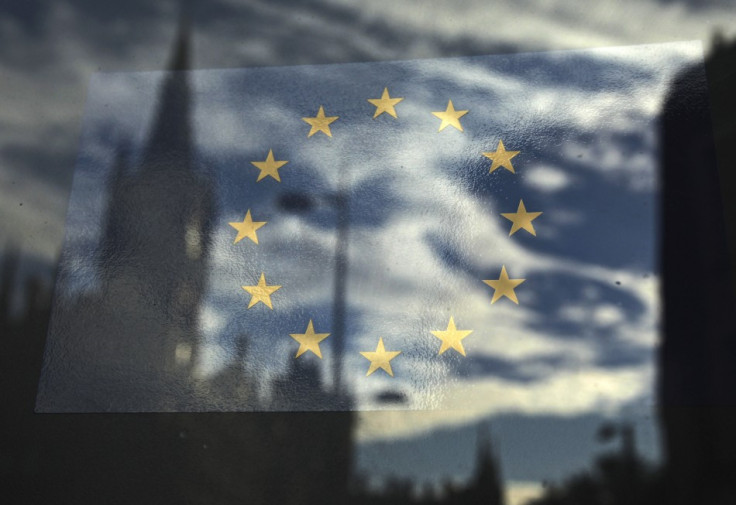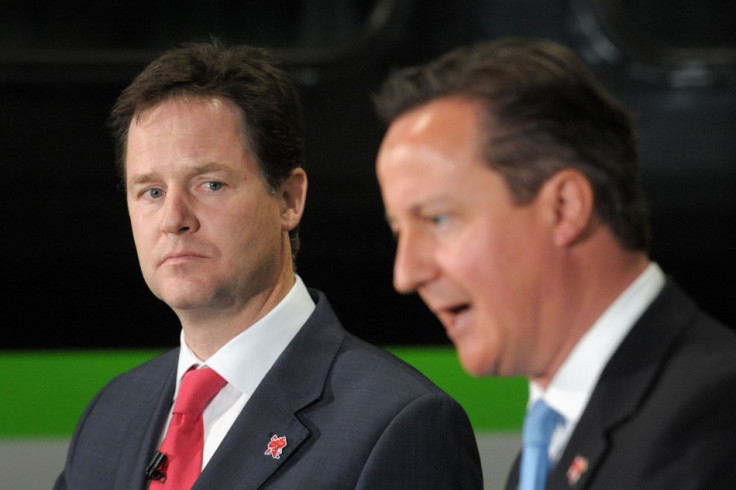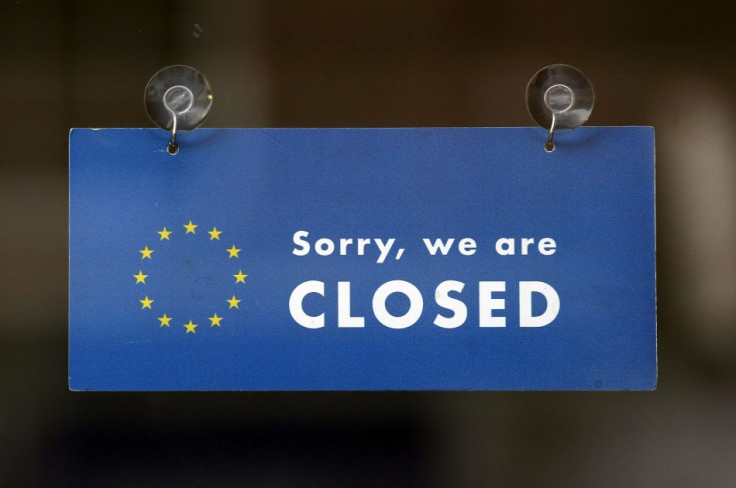Why UK Should Leave the EU [BLOG]

How could the U.K. carry on without the dynamic leadership of Herman Van Rumpoy, José Manuel Barroso etc. and the moral guidance of the European Human Rights Commission? What would we do without the warm and generous support of the Germans and the French?
What would the Kinnock family do, as they are now probably destitute after selflessly serving the EU for so long?
OF COURSE I'M JOKING

It does not help that the Conservative party is in a coalition with the Liberal Democrats who appear to love everything about the European Union (EU) and, if they had had the chance, would have had us in the Eurozone.
There seems to be a consensus (more of a drilled in piece of unquestionable accepted mantra) among political leaders that the U.K. has much to fear from an exit from the EU.
Thus, the country that built a huge empire, fought innumerable wars and created the industrial revolution is now terrified by the prospect of a potential trade war with its neighbours. Perhaps, at this point, a little history would help. For many hundreds of years, the major European states sought to exclude British goods from the continent and, whenever possible, British policy was to counter this by ensuring that no single state occupied a dominant position.
This was largely achieved through naval blockades and the country's position was later enormously strengthened by Nelson's destruction of the French and Spanish fleets and the subsequent defeat of Napoleon. The country maintained virtual control of the seas for around 100 years, creating a vast trading empire and attracting the jealousy of other European powers.
Then, the country that now slavishly obeys every line of pettifogging EU legislation was not so squeamish: when the land of Dutch settlers in South Africa was found to contain large quantities of gold and diamonds we simply went in and took it. The Germans later called similar tactics Realpolitik.
Following the defeat of Nazi Germany some wise men in Europe sought to break the cycle of conflict (and essentially prevent a fourth German invasion of France) by establishing what was intended as trading union of similar states. Britain was tacitly excluded from this, principally by the French who sought the leading position on the continent with the support of the Germans who, for obvious reasons, were content with a lower profile. Mention of U.K. membership was immediately opposed by the likes of De Gaulle on the basis that U.K. was a "maritime" country with interests elsewhere.
Incidentally, you may like to refer to the De Gaulle statement rejecting U.K. membership in 1963.
My advice is not to read this over breakfast - you may choke over your cornflakes with either rage or laughter, depending on your temperament! However, during the Heath era we apparently found ourselves in the position of a small child with its nose pressed up against the sweet shop window, waiting for someone to unlock the door.
The benefits that we were missing were apparently sufficient to discard our trading relationships with the Commonwealth, which had supplied cheap foods imports, and to make huge payments to other member states through the EU. Why we needed to do this is still unclear but, with the exception of Margaret Thatcher, all U.K. leaders since have acquiesced to every demand and have reduced the country to a level of subservience to nonsensical regulations that previous generations would have considered to be inconceivable. So what would happen if the U.K., politely and reasonably, informed the other member states that it was withdrawing from the EU?

The fears of U.K. politicians are centred around one factor: the possible high level of unemployment resulting from loss of trade with EU members and the effects of the exit on international investment.
The EU is supposed to provide free passage of goods and services across the region although, in practice, restrictions may still be maintained by some member states in a number of ways. For example, the U.K financial services industry encounters a number of restrictions. What would happen to this trade in goods and services if the U.K. withdrew?
Well, probably not much.
The U.K. has a negative balance of trade with the rest of Europe so any imposition of trade barriers could be self-defeating. Why would Germany and France impose tariffs, or other trade restrictions, on the import of motor vehicles made in the U.K. if the U.K. was prepared to follow suit?
This also answers the supposed problem of international investment. It is suggested that Far East manufacturers will not invest if they do not have access to EU markets. Is there any serious fear that this would be the case? The last time I looked China wasn't a member of the EU yet Europe is a major export market for China?
Why does the UK need to be part of Europe to continue exporting to it? The other effect of the U.K. exit would be a substantial hole in the EU budget.
Germany, France, the Netherlands and Finland having to stump up to fill the gap is not going to be popular with the populations of these countries - any suggestion that the other countries would contribute more is laughable. Perhaps the EU would have to trim its expenditure and derail the gravy train - It would be the end of the world as they know it. There are obviously many complexities that would have to be analysed and discussed. But why not do just that?
Let there be a free flow of information and detail, and frank discussions of the pros and cons before a referendum is announced that would be final and decisive. Why instead is there a blind acceptance in the U.K of what sometimes appears as a media induced mantra that Britain "couldn't possibly leave the EU?" One other factor that needs to be mentioned in any discussion of the U.K. exit is the situation surrounding the proposed referendum for Scottish independence. For a number of years Scottish nationalist politicians pointed out the success of the "Celtic Tiger" and how Scotland, with its independence and oil, would flourish in the EU or even the Eurozone. Thus, the referendum would have to involve the English, Welsh and Northern Irish alone as Scotland would, presumably, intend to stay within the Union.
This raises a further problem for the EU.
If Scotland were to achieve independence from the rest of the U.K. and apply for EU membership it could represent a real can of European worms, with the possibility of similar demands from the Basque Country, Catalonia, the Italian Northern Federation and, possibly the Belgian Flemish and Walloons. Surely it would be better for the UK to leave Europe and then properly concentrate on exporting to the markets of the future - not worrying about exporting to what will be become a huge lumbering socialist republic tied up in red tape, bureaucracy and regulation (what sort of demand do people actually expect from Europe in future decades?).
Focusing on trade ties with the BRIC economies, Africa, Australia, Canada and the USA would be hugely more rewarding in future decades surely?
Christopher Clarke is a former Goldman Sachs executive director, a hedge fund manager at Lawrence Clarke Investment Management and a senior lecturer in accounting and finance at Nottingham Business School. He has also launched a new blog to comment on the state of the global economy atwww.economicperil.com
© Copyright IBTimes 2024. All rights reserved.





